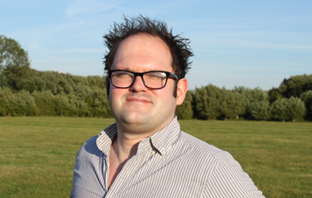It is with mixed feelings that I announce the most significant alteration in the five-year history of the Cultures of Knowledge project office. As of last week, our incomparable Digital Project Manager and long-time friend and colleague, Dr James Brown, has been reclaimed by his first love: the world of alehouses, taverns, and drink.
A word of clarification is in order, lest the unwary reader leap to a false conclusion. James came to us in the spring of 2009 fresh from a Warwick PhD on drinking cultures in seventeenth-century England; and he leaves Cultures of Knowledge to take up a three-year post as Research Associate on the exciting new ESRC/AHRC project Intoxicants and Early Modernity: England c.1580–c.1740, based at the University of Sheffield.

James will be dearly missed at Cultures of Knowledge, and we wish him well in all future ventures.
What he leaves behind in Oxford is an enterprise in which he has played an enormous, central, and indispensable role for four and a half years. When James joined us as Project Coordinator back in early 2009, no one could have foreseen either the way in which the Project would evolve or the central role that he would play in both conceptualizing and executing every step of that evolution. With a brief to coordinate the project to bring in deliverables on time and on budget, he began to assemble a formidable schedule of seminars, technical workshops, and conferences, expanding his role with remarkable rapidity to provide invaluable input in designing and planning as well as delivering each of these events.
From the outset, he also went way beyond the call of duty in employing some remarkable graphic design talents in producing beautiful posters and flyers, luscious slide decks, logos, and much more. Although designing, building, and maintaining the project website was not part of his original brief, he spontaneously emerged as an exceptionally accomplished web designer with a sharp sense of emerging best practice and breaking trends. His two successive Project websites and three conference microsites were labours of love and permanent project assets, each populated with a rich mixture of images, texts, podcasts, videos, and blogs.
As well as presenting the Project in cyberspace, James developed unparalleled skill in presenting our activities at national and international conferences and workshops, both on his own and in partnership with others. Preparing meticulously for these outings, he can pack more salient and comprehensible detail into a brief slot than anyone I have ever seen.
James’s presentations of Cultures of Knowledge – online and viva voce – were so effective because he more than anyone ended up straddling the crucial gap between the traditional scholarly and digital dimensions of the Project. As we transitioned from an editorial venture into a primarily digital enterprise focused on developing Early Modern Letters Online, his role evolved from Project Coordinator to Digital Project Manager, with the key task of translating scholarly and editorial desiderata into technical requirements. In negotiating with our academics, editors, and developers and subsequently managing the myriad details of the functionality of EMLO’s complex editorial back end — itself a thing of beauty, far surpassing what we originally undertook to create — as well as the presentation and functionality of the initial end user interface, he has played a central role in laying solid foundations for all of our future work. Our debt to James in this, as in every respect, is enormous.
Given James’s intuitive sense of the digital needs of modern research on the Republic of Letters, it has become easy to forget that his own research was and is in a rather different field of early modern cultural history. We are delighted that he has found an opportunity to align his established track record as a key player in large-scale collaborative research with a new initiative perfectly tailored to his personal academic aspirations and abilities. We all wish him success, good fortune, and happiness, and will watch in admiration as the intoxicants project moves from strength to gathering strength.

